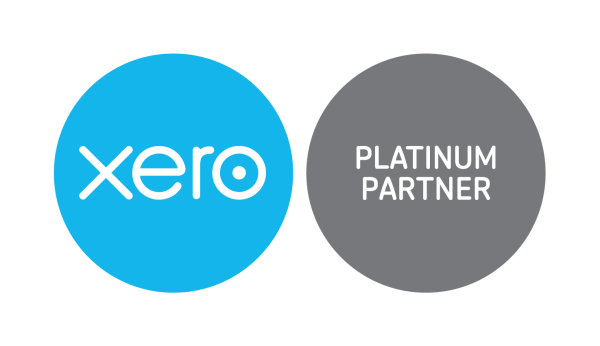How to choose the best Job Management Software

WorkflowMax, Fergus, BuilderTrend, Tradify... which job management software should you choose? Our software consultants live and breathe WorkflowMax, but don't necessarily recommend it for every situation as each business has its own specific needs. So how do you find the best solution for yours?
Go beyond general recommendations
Think outside industry labels
Define your needs and wants
Consider the size of your businese
General recommendations are not enough
FIRST – googling all the options and asking for recommendations online is not likely to help you find the right solution for your company. Here’s an analogy for if you were choosing a new lounge suite. This is like going around a whole lot of shops, checking out a whole lot of options, sitting on them for a bit, and then asking your friends what they like, and making a decision based on that.
And you may say, well that can work really well - BUT - I’m saying it works because you are not actually making a decision based only the features of the furniture, or what your friends recommend – you are considering much more than that. Like:
-
- How much space you have in the house, and whether the furniture will fit in the space
- Whether the furniture will fit with what else is going on in the room
- What it’s going to be used for, and whether there are children, pets, or disabilities to be considered
- Whether the people going to be using it will like it or not
- Whether it’s going to get rough treatment or not
And so on. It’s the same for choosing Job Management Software.
Looking at the list of features in the promo, and checking with someone who works in a similar industry to you is just the start. The type of software that suits your business is going to also depend on things like: - what are the priorities at this time - for example in the trades, are you needing to keep track of various vehicles on the road, and how teams are scheduled (FergusApp), or is it more about detailed information being kept on larger ongoing jobs, and communicating with clients. (e.g. BuilderTrend)
- your budget and whether you're willing to accept a trade-off with software which does most of what you want easily, but will require manual processes for the rest.
- who is going to be using the software. Some is built for ease of use (like FergusApp), but may not have the depth of reporting and analysis in other software like WorkflowMax.
- core strengths. Every cloud software app has it's own strength. Usually it also has other features that have been tacked on due to customer demand which may or may not suits your needs. Understanding what the core strengths are, and aligning these with your required core functionality is key. WorkflowMax has core strength in being able to customise the set up, with huge flexibility in many areas, and strong flexible reporting. But it's not as user friendly as some others which have build in graphs, and are colourful and intuitive to use.
Think Differently
Avoid being type-cast and looking only for a solution targeted at your industry. Are you a Builder for example? Your needs could be completely different from the needs of the builder down the road – your team size and structure, how you price, the types of jobs you do, your margins, and so it goes on. If you do a few large jobs then perhaps highly featured and complex software with a high per job price would be worthwhile. If you are more on the maintenance side, that that would most likely be the wrong choice. Some popular choices for builders include FergusApp, Tradify, WorkflowMax, Xero Projects, and BuilderTrend.
Consider your company's specific needs
What do the different roles in your business want from the job management software?
Different roles in your business may have quite different priorities – e.g. production staff v the person producing invoices v sales people quoting and so on. Be clear on what the priorities are that will help your business run smoother. These are the must haves. Then there will be a whole lot of nice to haves.
One of the most common discussions I have when talking through options for Job Management is around balancing the need for strong features in Scheduling and Communications, versus the need for flexibility and customisation with invoicing, and strong reporting.
The way I see it, its not a case of which software is the best, but which has the strongest features that match the closest to your business priorities. And, being clear about where the compromises will be both now and in the future.
Who is going to run the software, and what are their skills?
Do you have a team of highly computer literate designers, or is your workforce stronger on practical skills. Do your staff even have smart phones - some do not.... Is there a software “Champion” who is systems focused and good on detail who can maintain and get the best out of the system?
These things should influence your decision, and even before the decision on software is made, you may need to address some bigger decisions around the structure in your business and whether it’s time to delegate, re-allocate duties or take on a new team member.
It’s easy to choose software, the more challenging part is implementing it into your business. It is rare for me to see a business fully using their Job Management software. It's not rocket science, but businesses are busy and have other priorities and spending hours on the phone or trolling through help articles to figure out what they do and do not need to know.
Sometimes it's OK to only be using limited features, as long as this was not a surprise, and an active choice based on how the business was going to work best.
What are the “Outputs” you need ?
It’s essential to consider what reporting you need to make good decisions, what your invoices and quotes need to look like, what functionality you need in the data fields, what documents you might want to print like job sheets. If you have your requirements very clear this will help prevent going down a track with software that looks like it roughly meets your needs but when you get into the detail – it just doesn’t. For example if it can't produce the information you want onto your invoices, or print job briefs, or do the health and safety, or any other component essential to your unique business. As an example, WorkflowMax allows custom fields of various types, all of which can be reported on. But, uploading photos to print on a report is not possible - you can upload photos onto the file but it is more clunky that programmes designed to do that as a priority such as FergusApp.
If Scheduling and Capacity planning is a priority, you may need to look at adding PlanRightApp onto WorkflowMax.
How big is your business?
Off the shelf cloud Job Management software is generally designed for businesses up to around 50 employees. After that, due to the volume of processing, these solutions can start to strain (you may also want to see our article Are you too big for Xero?). This is not always true, but something to be aware of.
My words of wisdom…
Consider and answer the type of questions above, before looking at any software. And then, if you feel you need help, work with a NZ job management software consultant who is going to investigate, draw out, and carefully consider the wider picture of how your individual business works, before recommending ANY software.
